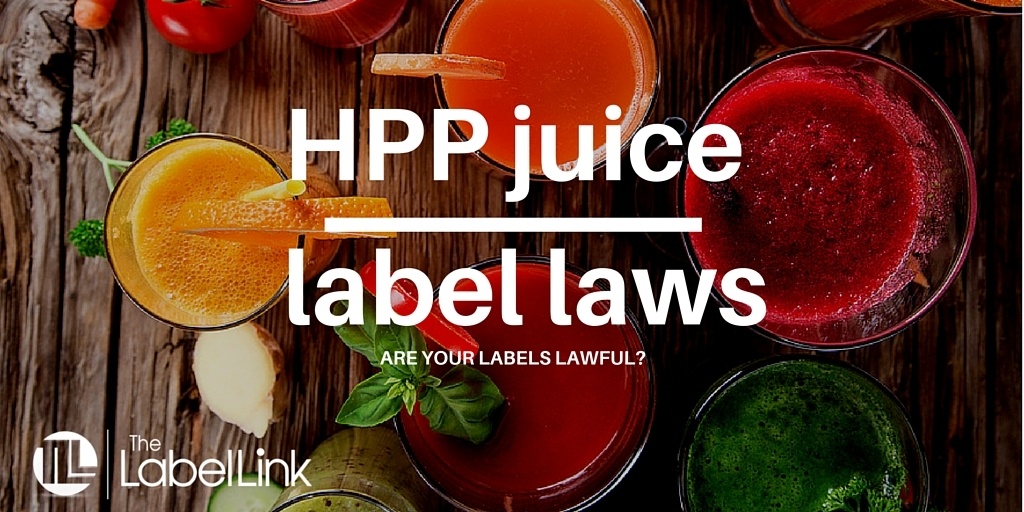

Are You Using the Right Verbiage on Your HPP Juice Label?
The juice industry has been turned upside down in recent years. Gone are the days of concentrated frozen tubes of orange or apple juice. Parents today are choosing unique combinations of superfoods and fruits, such as Kale, lemon, raspberry and more combined using the high-pressure processing (HPP) method.
Has your beverage company started offering HPP juices? If so, you might want to take a close look at the label on your HPP juice bottles.
Attorneys are filing more lawsuits against brands for how they market their products on their label. Here are a few rules you must be aware of when designing your HPP juice label.
Fresh Isn’t So Fresh…
When it comes to saying your juice is fresh, you might be breaking a few rules.
In 2015, the U.S. Food and Drug Administration (FDA) has ruled that using the word “fresh” on a HPP juice label is unlawful. Although it’s freshly pressed, as soon as you put the juice under pressure, it loses the ability to stake a claim as “fresh” on the label.
… Unless the Juice is Pasteurized
So what about those Tropicana bottles in the grocery store that claim the juice is “fresh squeezed?” It turns out, the FDA allows them to get away with saying this as long as the juice is clearly marked as “pasteurized.”
In the 1980s, Tropicana coined the term “not from concentrate.” This was meant to imply that the juice was freshly squeezed – the only alternative to concentrate juice. Many consumers believed the claim and paid the higher price tag for it.
Still, it wasn’t quite accurate. These juices had all gone through the pasteurization process. To help consumers understand that the juice wasn’t as fresh as the label would make them believe, the FDA required manufacturers to print “pasteurized” on the labels, “… in letters not less than one-half the height of the letters in the words ‘orange juice’.”
According to the FDA, this was sufficient for informing consumers that the juice they were about to consume was processed and not completely fresh. This stipulation remains in effect today, making it hard for HPP juice manufacturers to claim they are fresh, even when they are far fresher than the pasteurized juices in the store.
Are “Raw” Juice Manufacturers Getting a Raw Deal?
With the confusion over the term “fresh,” some juice manufacturers switched to using the term “raw.” As of now, there are no laws against using the word “raw” on an HPP juice label – at least not yet.
One HPP juice company, Suja Life LLC, is being accused of using this term on their label incorrectly. Earlier this year, Bursor & Fisher, P.A. filed a lawsuit after someone complained about their phrasing, “organic, raw and cold-pressed.” The claim was founded on the fact that Suja juices have a 30-day shelf life. True raw juices have a much shorter shelf life of only a few days.
Still, the point of using HPP is to extend the juice’s shelf life without affecting the raw nutrients.
Since the lawsuit, Suja Life LLC has eliminated the word “raw” from their labels, but the debate remains – can you claim HPP juices are raw? The jury is still out, but for now, it’s safer to avoid the verbiage.
Question: How do you market your HPP Juices?
The verbiage you use on your HPP juice labels is important. It matters to consumers because they want to know exactly what they’re putting into their body. It also matters to the FDA because they want to regulate how companies market their food and beverage products.
It’s a balancing act to keep everyone happy and keep your business profitable.
